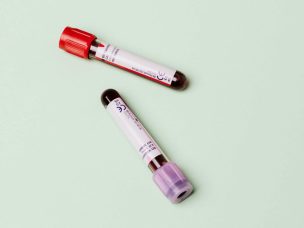WEDNESDAY, Dec. 30, 2020 (HealthDay News) — Electronic cigarettes as consumer products are not associated with smoking cessation in observational studies, according to a review published online Dec. 22 in the American Journal of Public Health.
Richard J. Wang, M.D., from the University of California in San Francisco, and colleagues conducted a systematic review of 64 papers (55 observational studies and nine randomized clinical trials [RCTs]) to examine the association between e-cigarette use and quitting cigarettes.
The researchers found that e-cigarette consumer product use was not associated with quitting in observational studies of all adult smokers (odds ratio, 0.947; 95 percent confidence interval, 0.772 to 1.160) and smokers motivated to quit smoking (odds ratio, 0.851; 95 percent confidence interval, 0.684 to 1.057). Daily e-cigarette use was associated with more quitting (odds ratio, 1.529; 95 percent confidence interval, 1.158 to 2.019), while less quitting was seen in association with less-than-daily use (odds ratio, 0.514; 95 percent confidence interval, 0.402 to 0.665). E-cigarette use was associated with more quitting in RCTs that compared quitting among smokers who were provided e-cigarettes to smokers provided with conventional therapy (relative risk, 1.555; 95 percent confidence interval, 1.173 to 2.061).
“It’s important to recognize that in clinical trials, when certain e-cigarette devices are treated more like medicine, there may actually be an effect on quitting smoking,” Wang said in a statement. “But that needs to be balanced against the risks of using these devices.”
Abstract/Full Text (subscription or payment may be required)










